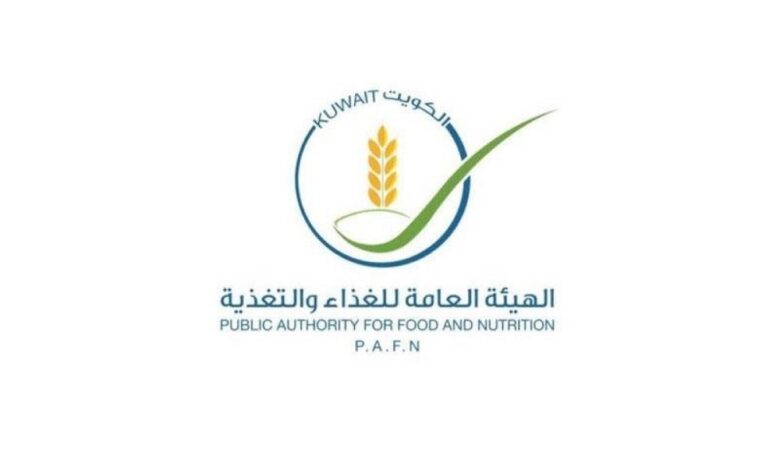300 kg contaminated meat seized in Shuwaikh
Spoiled frozen meat which had undergone significant changes to its natural properties, rendering it unfit for human consumption, was being improperly and falsely sold as fresh.

Following the directives of the Council of Ministers, the Public Authority for Food and Nutrition continues to enforce the law across all markets and food centers nationwide. This effort aims to identify food unfit for human consumption, including spoiled items, and to apprehend those who jeopardize the health of citizens and residents.
In this context, the Food and Nutrition Center in the Capital Governorate conducted a comprehensive inspection campaign targeting central markets, food centers, and meat shops in the Shuwaikh Industrial Area. During the operation, authorities seized hundreds of kilograms of spoiled meat, which poses a serious health risk to consumers.
The head of the Mubarakiya Center, Muhammad Al-Kandari, told Al-Jarida that the law enforcement efforts are in line with the directives of the Director General of the Authority, Reem Al-Fulaij.
As part of this initiative, the authority’s inspection sectors conducted an extensive campaign targeting food centers, restaurants, and shops selling meat and poultry in the Shuwaikh Industrial Area.
The campaign resulted in the seizure and destruction of 300 kilograms of spoiled meat, offal, and other meat-related food items. Additionally, the shops where these unsafe food items were found were closed.
Al-Kandari further stated that during the inspection campaigns, it was discovered that spoiled frozen meat which had undergone significant changes to its natural properties, rendering it unfit for human consumption. However, it was being improperly sold under the false claim of being fresh, a clear case of commercial fraud.
Moreover, Al-Kandari emphasized that a visual inspection confirmed the meat was indeed spoiled, with noticeable changes in both its color and odor. This was a direct violation of the Public Authority for Food’s regulations governing the monitoring of markets, food sales centers, and restaurants.
Take the necessary action
Al-Kandari confirmed that necessary legal measures were immediately implemented to destroy the entire quantity of spoiled meat and prevent its circulation or sale within the seized stores.
Consequently, violations were issued, and the stores were fully closed to protect the health of consumers, both citizens and residents, ensuring that none of this spoiled meat would be sold to the public.
On a serious note, Al-Kandari pointed out that the inspection operations uncovered whole slaughtered animals and parts that had been improperly stored in these stores by freezing them for extended periods, causing them to expire. These items were then thawed, with the ice removed, and displayed to customers as if they were fresh, despite being unfit for human consumption.
Furthermore, Al-Kandari stressed the Authority’s commitment in taking decisive action against anyone who attempts to sell adulterated food or spoiled meat that could harm the health of consumers, both citizens and residents.
He emphasized the Authority’s dedication to strictly enforcing the law at every step of the inspection process, ensuring the protection of the health of citizens, residents, and visitors to central markets.
Contact the Authority
Al-Kandari urged citizens and residents not to hesitate to contact the Public Authority for Food and Nutrition if they purchase meat that later prove to be unfit for human consumption.
This will enable the Authority to take legal action, close the violating shops, and refer their owners to the appropriate legal authorities. He also advised consumers to rely on certified food establishments in the country that are known for selling fresh, high-quality meat.
Al-Kandari stated that the Authority’s inspectors are continuing their inspection tours across all governorates to protect consumer health and prevent spoiled food from reaching homes. These proactive operations target stores to seize any spoiled food.
Moreover, he also emphasized that the Authority’s inspection campaigns are in line with the Cabinet’s decisions, which aim to ensure food security in the country by providing food that is safe for human consumption and continuously monitoring expiration dates around the clock, all in an effort to preserve the health of citizens and residents.
Al-Kandari highlighted that the Authority’s centers operate across all governorates to monitor food violations, close shops that sell spoiled food and meat, and shut down restaurants involved in such practices. This is done to safeguard the health of citizens and residents and to strengthen food security in the country.
In addition, Al-Kandari mentioned that the Authority’s inspectors work round the clock to monitor food violations and stressed the importance of imposing severe penalties for commercial fraud and tampering with consumers’ health. He emphasized the application of the law and the use of official channels capable of deterring those who sell spoiled food.
Also, Al-Kandari revealed that the recent closures were a result of repeated violations by these stores, including the sale of spoiled meat whose natural properties had changed, meat packaged in harmful chemical bags, and failure to comply with basic hygiene standards.
Reconciliation passport
Al-Kandari explained that violations involving the sale of food items unfit for human consumption are non-reconcilable. In contrast, violations that can be reconciled involve fines, which must be paid within 60 days from the date the violation is identified.
Regarding upholding the law, Al-Kandari added that violations leading to the closure of a facility for failing to meet general hygiene requirements do not grant the owner permanent permission to reopen the establishment. Instead, the reopening is only temporary, allowed once the causes of the violations have been addressed and corrected.
Finally, the facility undergoes a re-inspection to verify that the issues leading to the violation have been resolved. A report is then submitted to confirm this, and based on the findings of the Food Authority inspectors, the facility may be granted permanent permission to reopen.












